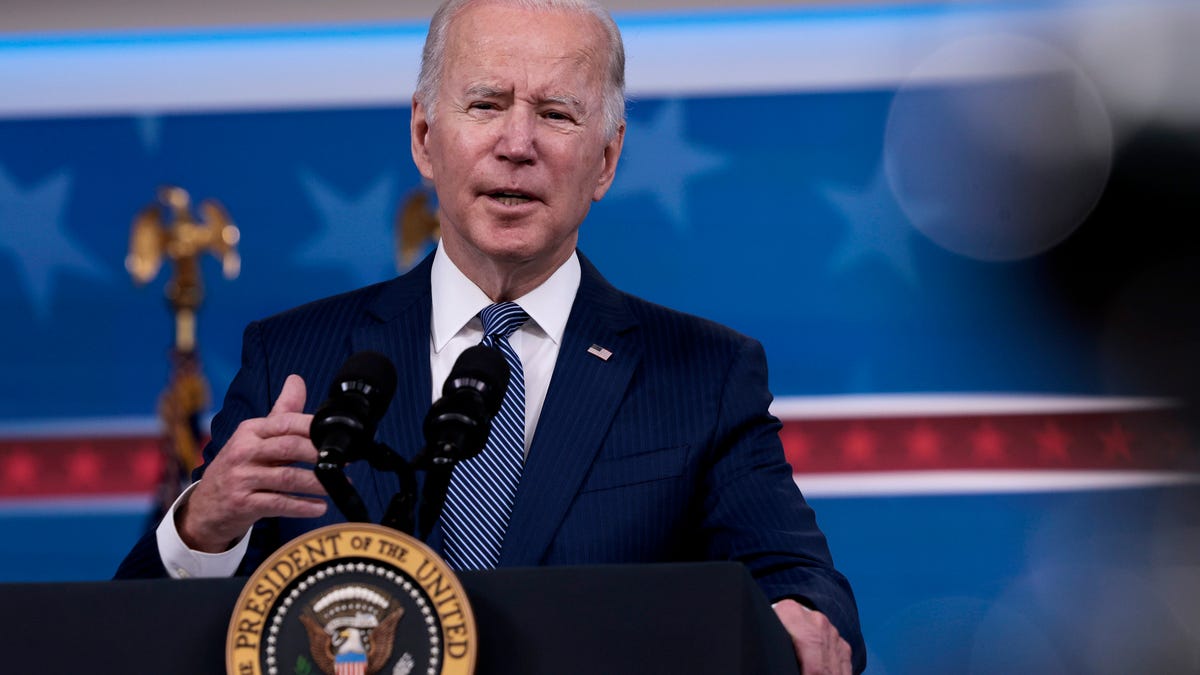Biden Directs Feds to Regulate Cryptocurrency and Consider 'Digital Dollar'
The first crypto ruling from the White House calls for measures to protect consumers and investors while mitigating risk.

President Biden signed an executive order Wednesday calling on government agencies to evaluate the risks and benefits of digital assets, including cryptocurrencies, and to explore the possibility of creating a US central bank digital currency, a type of government-controlled cryptocurrency.
Until now, the federal government has lacked a unified approach in addressing cryptocurrencies. Biden's executive order directs agencies across the government to provide policy recommendations on risks to consumers, investors and financial markets dealing with cryptocurrency, as well as opportunities for equitable access to financial services.
While the move could pave the way for future laws to address economic and security concerns of the growing crypto sector, Biden's order appears to be a starting point for other agencies to build on.
"I look forward to collaborating with colleagues across the government to achieve important public policy goals: protecting investors & consumers, guarding against illicit activity, & helping ensure financial stability," said Securities and Exchange Commission Chair Gary Gensler via Twitter.
The order comes on the heels of Washington's sanctions against Russia in response to the country's war in Ukraine. The White House recently raised concerns over cryptocurrency giving Russia more leeway to sidestep the impact of sanctions. Bloomberg reports the Biden administration asked cryptocurrency exchanges to bar all Russian users -- a move that exchanges haven't complied with, despite already agreeing to ban specific users in Russia.
One of the more active US agencies in the crypto domain has been the SEC, led by Gensler, who is outspoken in his view that more laws and transparency are needed to protect investors and businesses engaging in such digital assets. The SEC previously issued rulings on publicly trading bitcoin futures ETFs, and weighed in on crypto-lending products that could be considered unregulated securities.
US Treasury Secretary Janet Yellen, who has spoken critically of cryptocurrency in the past, saying that bitcoin is an "extremely inefficient" way to conduct transactions, also praised Biden's order.
"This approach will support responsible innovation that could result in substantial benefits for the nation, consumers and businesses. It will also address risks related to illicit finance, protecting consumers and investors, and preventing threats to the financial system and broader economy," Yellen wrote in a statement from her office.
Circle CEO Jeremy Allaire, who was called to testify before the House Financial Services Committee in December concerning the cryptocurrency industry, called Biden's order a "watershed moment."
"This [executive order] should be viewed as the single biggest opportunity to engage with policy makers on the issues that matter. The proverbial doors of policymakers are wide open, this is now a national conversation in the US," Allaire said via Twitter.
Biden's executive order also comes at a time when an increasing number of Americans are buying crypto assets. A White House fact sheet notes that 16% of Americans have used cryptocurrency. A new poll conducted at the end of February by Harris, on behalf of Protocol, found that three in 10 American adults now trade cryptocurrency.

